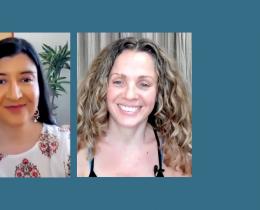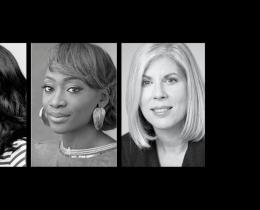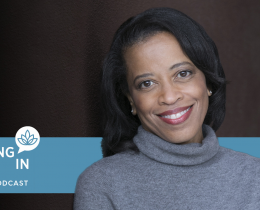Marianne: The Omega Women’s Leadership Center is looking to redefine power and catalyze a new way of envisioning women’s leadership. What is true power and how do you think it should be used?
Sally: There is the obvious power that comes with money or success. But there’s also personal power that comes from someone working hard on his or her own internal process—the kind of power we talk about as “finding your voice.” It requires you to turn within on a daily basis and not leave any leaf unturned as you discover what it really means to be alive. You can be powerful or successful in the professional world but have very little understanding of who you are as a human being. You can have a lot of money but that doesn’t mean you know the agony and exquisiteness of being alive.
Marianne: What are the ingredients for successful leadership? What type of leadership do you think the world needs right now? What do women need to cultivate in themselves?
Sally: I believe that the world needs leaders—either men or women—who have done the internal work to understand what it means to be alive. They should have a degree of success or expertise in their field, but within that they need to have done the work to connect to themselves. We need leaders who spend an equal amount of time striving to understand their own humanness while also striving to achieve their professional goals.
Marianne: You once said, “Women are quite simply the best change agents in the world.” I know it can be hard to avoid making generalizations, but what is the basis of that belief?
Sally: There are a lot of biological processes that make women more equipped to handle change. Women experience life as cyclical right in their own bodies, and I think this makes them more adept at going with the flow, adapting, and being able to move from one thing to the next. There is a nurturing aspect to women that is probably hardwired hormonally and is definitely enhanced by our culture. This generally leads us to have a greater sense of compassion. Society also forces women to grow in a way that men aren’t required to. Many women have had to and continue to have to work hard to survive, whether juggling life-or-death situations or juggling families and jobs. Women are responsible for managing things and doing them all as well as they possibly can.
Marianne: Psychologist and author Carol Gilligan has observed that we tend to lose our voices at a young age. In order to be change agents, we need to reclaim our voices. How can we do that?
Sally: I don't think there is an easy answer, but I do think it's helpful for each of us to talk about why it took us so long. Depending on the degree of trauma in your life, and your current situation, finding your voice may take a long time. At a young age I was pressed into being a celebrity, which caused me to shut down and lock myself away from the human race for a long time.
Marianne: How do you think your personal successes and failures have taught you throughout your life?
Sally: How have they taught me? They are me. All my failures and all my successes as a mother and as a daughter and as a professional are me. I am a reflection of all of it.
Marianne: Where do you draw the strength and courage to get through hard times?
Sally: I don’t know! To paraphrase Camus, even in the midst of winter, I find within me an invincible summer. That’s what I feel.
Marianne: What guidance or words of wisdom would you offer your younger self if you could go back?
Sally: I don't need to go back—I am still talking to my younger self! I am a big believer that the unexamined life is not worth living. One of the things that saved me was therapy. There are many different kinds available—find one that helps you go within and really examine your own process. You’ll find that within you is all that you desperately want. And if you already know this, therapy will help you own it better. You will find the strength that is just waiting there—your invincible summer. It isn't somebody else that's going to help you feel seen and teach you the strength of your voice. In most instances, it's going to come from within.
Marianne: How do you stay connected to your inner world? What tools or practices do you depend on?
Sally: Reading and meditation are very helpful. A mindfulness practice is really important in order to learn how to quiet your mind. I recommend all of Dan Siegel’s books, but there are many other books about the journey within. Find your core so you can find the strength to go out and do the things that you really want to do.
Marianne: I know you've raised sons. What wisdom do you have to share on raising balanced boys who not only respect women, but also embrace all aspects of themselves?
Sally: You can’t teach a lesson; you can't sit them down and scold them—you can only teach by example. I’ve always let my children be in on my process. I tried not to burden them with it, but I wanted them to see that I reach out and sometimes I succeed and sometimes I fail. If I fail or get hurt, I pick myself up. I now watch my sons parent with loving care and attention and that is the truest feeling of achievement for me, to watch my children parent in a healthy, productive way.
Marianne: Omega's work centers on developing the multiple human intelligences of mind, body, heart, and spirit. How would you describe your own philosophy of life, or belief system that helps guide you?
Sally: I don't have specific beliefs, I just try to hear myself, try to hear the people around me, and always push the envelope. I don't want to be caught in the same place for very long and any time I feel frightened of doing something, that usually means I better get in there and do it.
Marianne: What do you think is possible as we work to create a different world and a more hopeful vision for humanity and the planet?
Sally: Well, everything is possible. Anything and everything is possible when women are brought to the table in every country, in every way.




